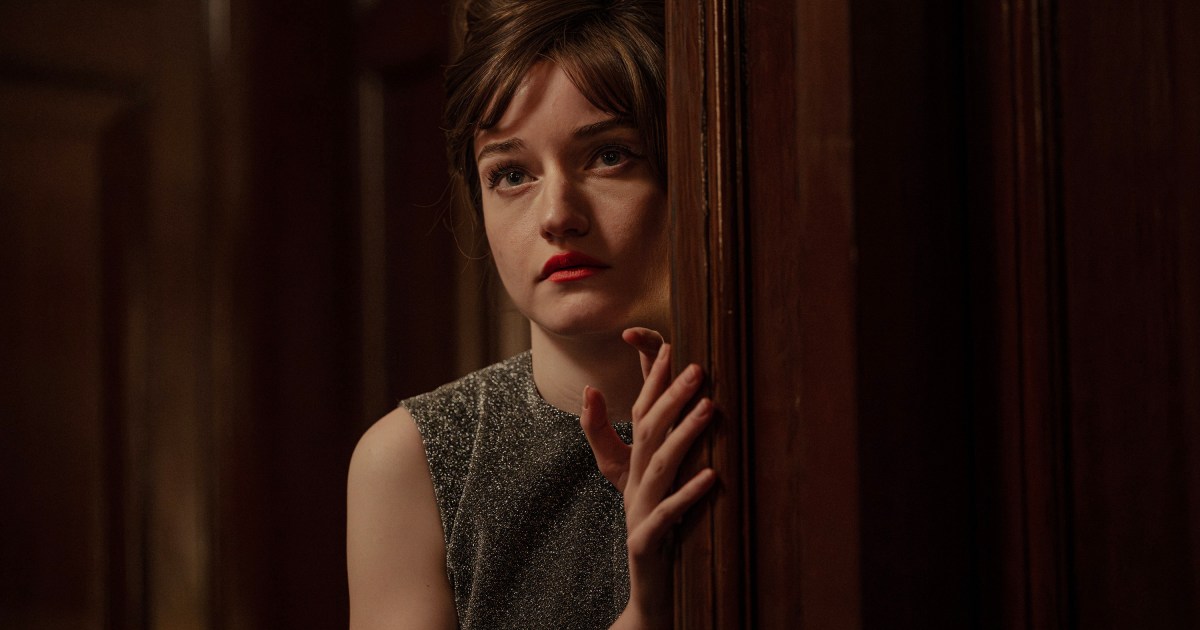“Apartment 7A is an unnecessary prequel that fails to recapture the unsettling magic of its parent film.”
Pros
- Julia Garner’s earnest, captivating lead performance
- A few inspired stylistic detours and frightening images
Cons
- Incongruously sharp editing throughout
- An overly serious tone
- A plot that often feels like a rehash
The only things separating an inspired prequel from a foolish one are a strong idea and a strong artistic perspective. Apartment 7A doesn’t have either. It’s a prequel centered around a minor character from 1968’s Rosemary’s Baby, Terry Gionoffrio (Ozark star Julia Garner), whose fate is explicitly spelled out in that film’s first act. That’s a problem in and of itself, and one that Apartment 7A only addresses by hoping its viewers either haven’t seen its parent film or, at the very least, don’t remember the specifics of its plot. What’s even worse is how thoroughly Apartment 7A misjudges where the enduring, terrifying power of Rosemary’s Baby comes from.
One of the most iconic American horror films of all time, Rosemary’s Baby isn’t “scary” per se — not in the modern or most straightforward sense of the word. It has little to no jump scares and only a few truly frightening images, most of which come during the same midpoint, hallucinatory sequence. Its horrors linger beyond the edges of its frames — hidden within the smiles of its heroine’s pushy neighbors, the shadows of its New York apartment building, and behind literal veils. It’s a horror film that tries for most of its runtime to never shove the nightmarish aspects of its story in your face. When it does, it often does so with a darkly funny touch that just makes the truly outlandish evil of its villains all the more startling.
Apartment 7A, conversely, can’t help but show its hand. It is a prequel comprised of static shots and sharp cuts that prevent it from ever recreating the dreamlike hold of its classic predecessor. It is even more literal and absurd, and yet it lacks Rosemary Baby‘s macabre sense of humor. Apartment 7A, in other words, misses the mark by missing the point.

When Apartment 7A begins, Garner’s Terry is a New York City dancer with dreams of one day seeing her name up in lights. The film, set in 1965, wastes no time dashing her dreams. Its prologue swiftly ends with Terry injuring her ankle so badly that dancing becomes a physically painful endeavor. This twist of fate sends Terry down a spiral of denial and drugs that ends with her being picked up off the sidewalk by Minnie (Dianne Wiest) and Roman Castevet (Kevin McNally), a seemingly kindly older couple. When Terry awakens from a drug-induced stupor, Minnie and Roman offer to let her stay in the apartment they own next to theirs and reintroduce her to their Broadway producer neighbor, Alan (a wasted Jim Sturgess).
What seems at first like a welcome stroke of luck starts to feel dangerous after a one-on-one night with Alan leaves Terry with bruises on her body and increasingly demonic visions. Minnie and Roman’s generosity, in turn, morphs into something more nefarious, and it isn’t long before Terry has grown both afraid and suspicious of her neighbor’s secret (but not particularly well-hidden) plans for her. Those who have seen Rosemary’s Baby will know all along what’s really going on within the walls of the Bramford, Apartment 7A‘s labyrinthine central building, and the prequel doesn’t do anything to offset the predictability of its plot. Instead, it repeats nearly all of the major dramatic beats of Rosemary’s Baby, a fact that makes it feel more like a remake than a prequel right up until the exact, last-minute moment when it has to diverge from its predecessor.
Director Natalie Erika James and her co-writers, Christian White and Skylar James, make the mistake of overemphasizing the malevolence of the Bramford’s residents in a way that Rosemary’s Baby pointedly doesn’t until its third act. Minnie, in particular, behaves in such an obviously sinister manner for much of Apartment 7A that Dianne Wiest’s iteration of the character pales in comparison to the unlikely evil of Ruth Gordon’s, despite the fact that Wiest consciously and distractingly tries hard to imitate Gordon’s accent and voice. Only Garner, as talented a young actress as we have right now, manages to step out from the shadow of Rosemary’s Baby and offer something new and worthwhile. Her Terry is more blunt and desperate than Mia Farrow’s Rosemary, and Garner does her best to play Apartment 7A‘s drama as earnestly and realistically as she can.

While its decision to tell Terry’s story greatly restricts its freedom, Apartment 7A still stumbles upon ideas that feel both distinctly tied to those at the heart of its greater franchise and unique to it. In its parent film, Farrow’s Rosemary is a woman who believes that those around her actually see her as a human being. It’s only at the end that she discovers they view her and her body as means to their own ends, and it’s thanks to the unvarnished beauty of Farrow’s performance that we feel simultaneous horror and heartbreak for her. Apartment 7A, meanwhile, uses Terry’s career as a vessel to explore how the professional dreams of women have long been seen and used by those in power — mostly men — as bargaining chips or opportunities to exploit them.
That truth is made immediately clear to both the audience and Garner’s Terry, though, which means that Apartment 7A‘s confidently executed ending is rendered largely weightless. The prequel forgets just how important the supporting characters of Rosemary’s Baby are to its biggest moments, and it invests so little in them that their treatment of Terry doesn’t land as harshly as it should. The new film is a stylish and, at times, genuinely scary prequel, but it says so little new that its existence is left unjustified.
Rosemary’s Baby director Roman Polanski’s real-life actions have made appreciating the artistry of his early films and his ability to highlight the overwhelming nature of the world’s evil a difficult act. Had it better understood what makes Polanski’s 1968 film so haunting, Apartment 7A could have emerged as a worthy alternative for those uninterested in grappling with its predecessor’s now-complicated legacy. But it unwisely tries to replace the soft, strangling effect of Rosemary’s Baby with a blunter style that is significantly less effective. Its horrors are more obvious, its ideas more ham-fisted. It hits you in the face, but it doesn’t get under your skin.
Apartment 7A is streaming now on Apple TV+.
Read the full article here














